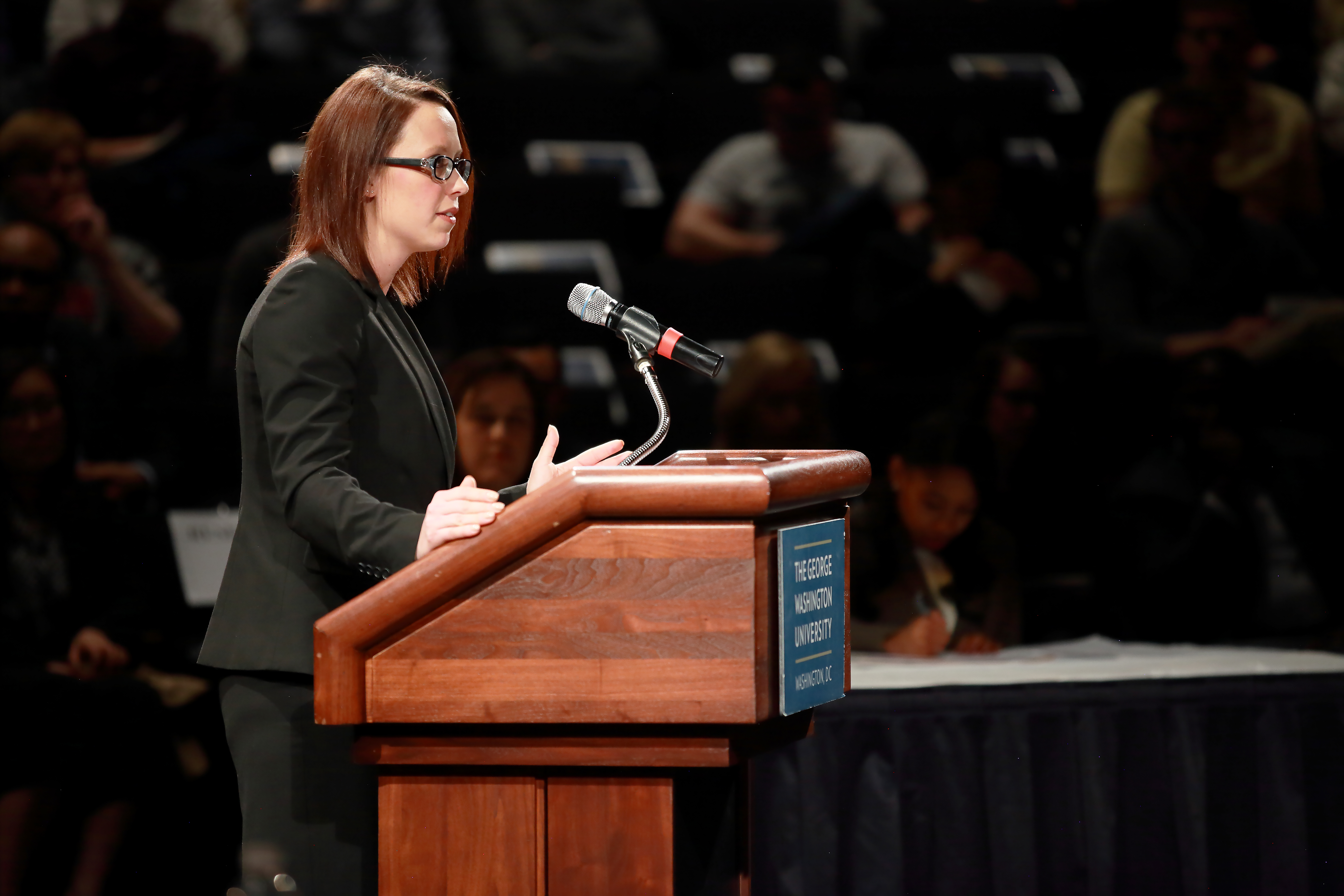The 67th Van Vleck Constitutional Law Moot Court Competition Finals took place on Wednesday, January 25 at the Marvin Center Betts Theatre. The finalists, 2Ls Michelle Ramus and Elizabeth Upton v. 3Ls Brittany Crosby and Sarah Cornwell (McLeod-Warrick), argued before a bench featuring Judge William J. Kayatta, Jr. (First Circuit), Judge Raymond M. Kethledge (Sixith Circuit), and Judge Kathleen M. O’Malley (Federal Circuit). Working in teams of two, the 3Ls represented the petitioners, while the 2Ls represented the respondents.
This year's case presented two issues. The first involved a new escheat law that applies to a broader category of property and has much shorter time frame than the traditional 20 years, which raises taking questions. The second was a due process notice issue with the law providing limited notice to owners. The problem was drafted by Competition Vice-Chairs Bud Davis and Jordan Hess.
Judges fired questions at the four finalists, leaving the theatre filled with uncertainty as to who would clinch first place. After hearing from both sides, the judges announced Michelle Ramus and Elizabeth Upton as the winners.
"It was a close competition and I thought Brittany and Sarah were excellent. It is impossible to know the basis of the judges’ decision, but I would credit our hard work anticipating and preparing for a broad range of issues and our composure and ability to advocate our position under the pressure of intense questioning," Elizabeth Upton said in regards to how her team was able to clinch first place.
Brittany Crosby reflected on the experience, saying, "I remember attending the final round as a 1L and thinking how scary it must be for a law student to argue in front of appellate judges and a large portion of GW Law. Now, two years later, I was given the same opportunity to argue in front of three appellate judges… I have learned and grown professionally after only two years of law school."
After the oral arguments, the finalists were given the opportunity to meet with the judges. "The opportunity to receive personalized and detailed feedback from a First Circuit, Sixth Circuit and Federal Circuit judge is something that most law students and lawyers are not able to receive this early in their legal career," Ms. Crosby said.
This marks the second consecutive year of an all-female Van Vleck Final.


